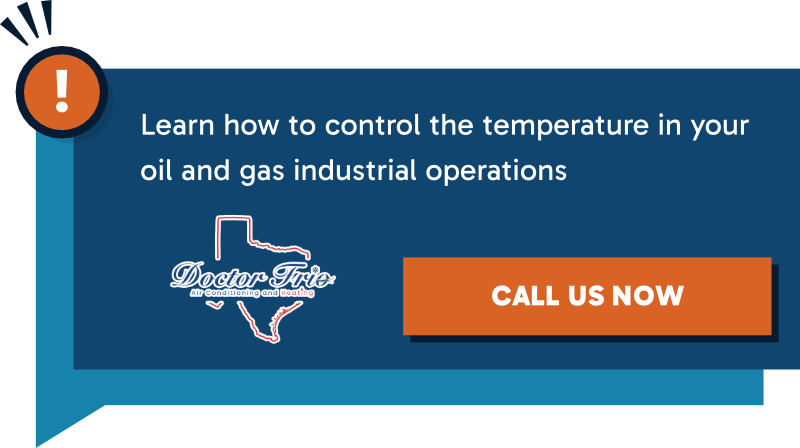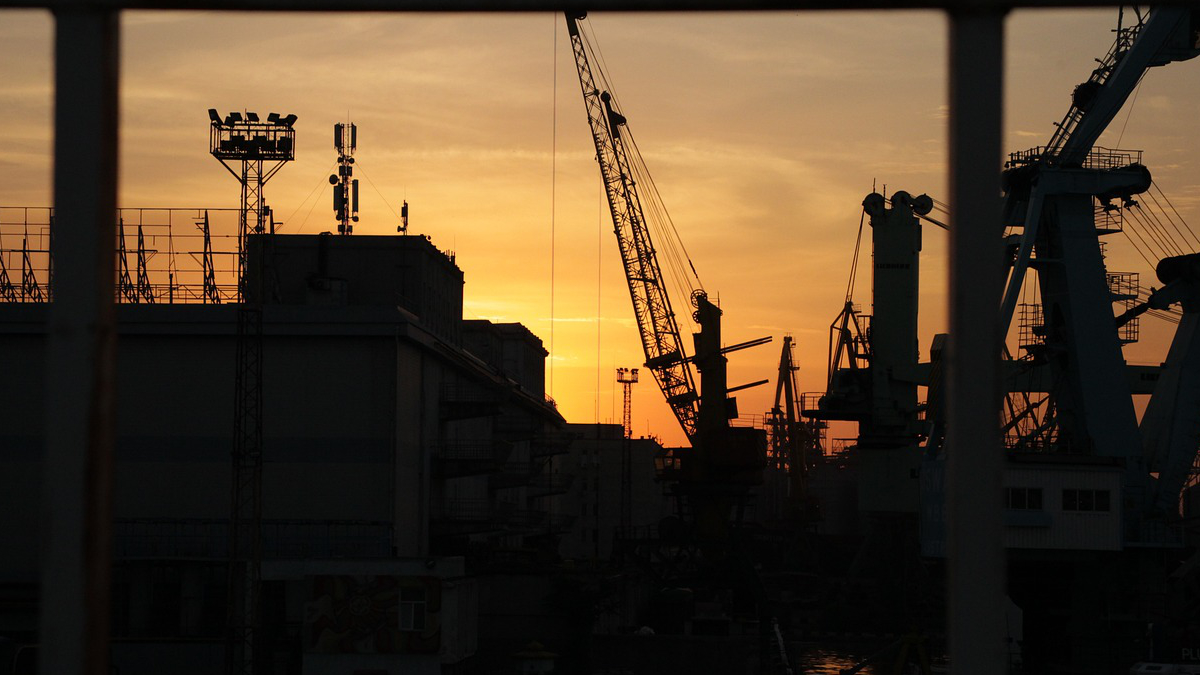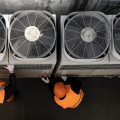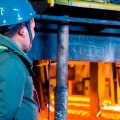Selecting an HVAC (heating, ventilation, and air conditioning) system for operations in the oil and gas industry requires a technical and strategic approach. Extreme conditions, the inherent risks of hydrocarbons, and strict safety standards demand specialized solutions. A well-designed HVAC system not only improves operational efficiency but also ensures safety and regulatory compliance.
In this regard, plant managers in the oil and gas sector should consider certain key factors when choosing an appropriate HVAC system, ensuring that the specific requirements of this challenging environment are met.
With that in mind, to select the ideal HVAC system for oil and gas plants, you should consider:
1. Evaluate operational conditions
Each oil and gas operation presents unique conditions that directly impact HVAC system requirements. When selecting a system, consider:
- Climate and outdoor temperature: In areas like West Texas and the entire Permian Basin, where temperatures can be extreme, the system must be capable of maintaining a stable environment throughout the year.
- Exposure to chemicals: Processing operations generate corrosive vapors and particles that can damage HVAC components. Choose materials that are resistant to corrosion.
- Thermal load: Calculate the thermal load of each operational area to correctly size the system and avoid over-sizing, which could waste energy.
2. Identify critical areas
In oil and gas facilities, not all areas have the same HVAC requirements. For example:
- Classified areas: These are areas where flammable vapors may be present. Here, the HVAC system must be explosion-proof, with electrical components sealed and designed to prevent sparks.
- Control rooms: These areas must maintain proper temperature control and constant humidity levels to protect sensitive electronic equipment.
- Personnel areas: Spaces occupied by workers require systems that offer thermal comfort, preventing thermal stress in extreme conditions.
3. Prioritize energy efficiency
The continuous operation of HVAC systems can account for a significant percentage of energy consumption in oil and gas facilities. Implementing energy-efficient technologies will reduce operational costs. Key strategies include:
- Energy recovery systems: These systems capture residual heat generated in processes and reuse it for heating or preheating.
- Smart controllers: These devices allow the system to adjust in real-time based on demand, preventing excessive energy use.
- Variable speed motors (VFD): These motors adjust fan speeds according to airflow needs, improving energy efficiency in the plant.
4. Ensure regulatory compliance
The oil and gas industry is highly regulated, and HVAC systems must meet international and local standards. Verify that the system complies with:
- NFPA 70/NEC: Requirements for areas with explosive atmospheres.
- ASHRAE 62.1: Standards for indoor air quality in industrial buildings.
- OSHA: Safety regulations to protect workers in hazardous environments.
Additionally, consult with suppliers who can certify that the system components comply with these regulations.
5. Select durable materials and designs
The materials used in the HVAC system must withstand the harsh environment of oil and gas operations. Consider the following:
- Stainless steel ducts: Ideal for areas exposed to corrosive vapors.
- Anti-corrosive coatings: Protect metal surfaces on ducts and equipment.
- High-capacity industrial filters: Capture particles and contaminants to prevent blockages and maintain air quality.
6. Consider maintenance and reliability
Downtime in oil and gas operations can be extremely costly. Therefore, the HVAC system must be reliable and easy to maintain. Look for options that offer:
- Quick access to components: To facilitate repairs and preventive maintenance.
- Diagnostic alerts: Automated systems that notify of problems before they become critical failures.
- Maintenance contracts: Work with providers like Doctor Frío A/C and Heating, who offer regular inspection and repair services.
7. Consider scalability and customization
Oil and gas operations are dynamic and may require future expansions. When choosing an HVAC system, ensure that it is scalable and adaptable to changes in the plant. Work with a provider like Doctor Frío A/C and Heating, who can design customized systems tailored to the specific needs of your operations.
Any additional advice for selecting an HVAC system in the oil and gas industry?
Selecting the right HVAC system for oil and gas operations is a complex process that requires carefully evaluating operational conditions, safety regulations, energy efficiency, and maintenance requirements. Investing in a well-designed system not only ensures regulatory compliance and safety but also reduces long-term operational costs.
At Doctor Frío A/C and Heating, we are experts in HVAC solutions for the oil and gas industry. We offer customized systems that meet the highest safety and efficiency standards. Contact one of our representatives for professional advice and discover how we can help optimize the performance and safety of your operations.




